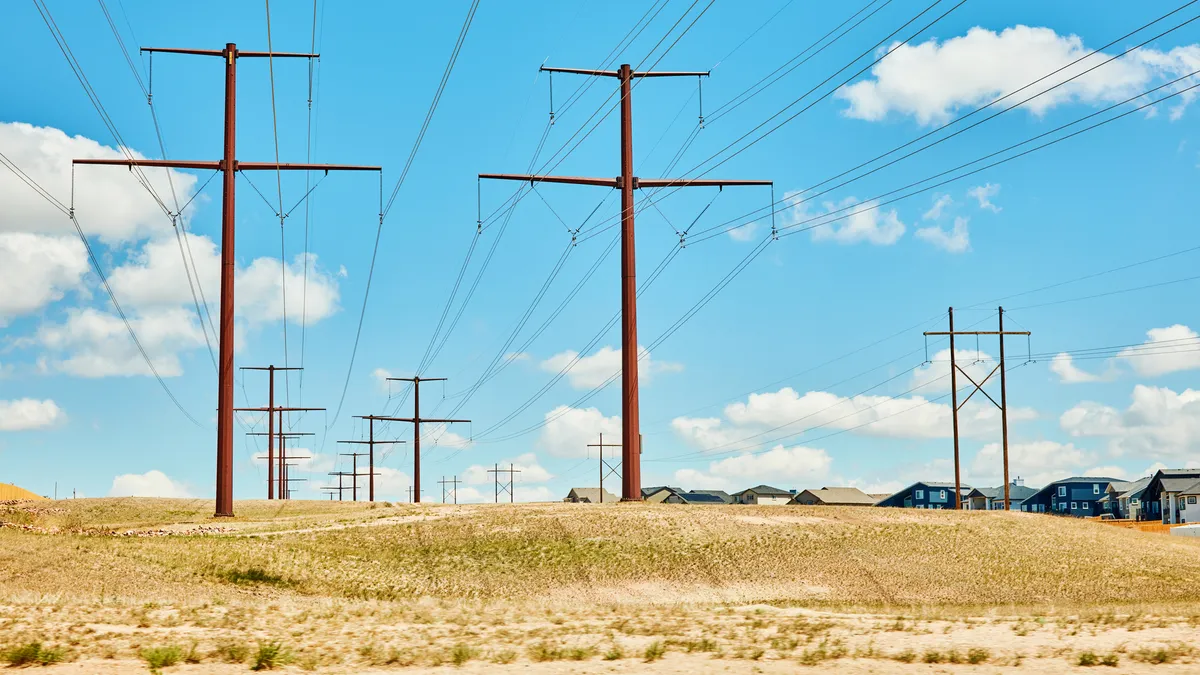Dive Brief:
-
A Texas law giving incumbent utilities the sole right to build transmission lines connecting to their systems likely violates the U.S. Constitution’s dormant Commerce Clause, which bars states from restricting interstate commerce, the U.S. Court of Appeals for the Fifth Circuit said in an opinion Tuesday.
-
The appeals court ordered a lower court to reconsider its decision to reject arguments by NextEra Energy Transmission and affiliated companies that a Texas law called S.B. 1938 violates the Commerce Clause.
-
“Today’s ruling shifts the burden to the state to show that the law has a legitimate local purpose and is not merely an anti-competitive, anti-consumer giveaway to local utilities that are afraid of competition,” Ari Peskoe, director of the Electricity Law Initiative at the Harvard Law School, said in an email Tuesday.
Dive Insight:
The court decision comes as the Federal Energy Regulatory Commission is considering broad changes to its transmission planning rules, including whether incumbent utilities should be given a right of first refusal, or ROFR, to build certain regional transmission lines.
Like several other states, Texas in 2019 passed a law giving incumbent utilities a ROFR in areas of the state run by the Midcontinent Independent System Operator and the Southwest Power Pool. If the utility opts against building the project, it must give it to another incumbent utility.
A year before the law was passed, MISO awarded NextEra the $130 million Hartburg-Sabine Junction 500-kV project to reduce grid congestion in East Texas. The company also planned to buy the Jacksonville-Overton Line in SPP’s footprint in East Texas from Rayburn Country Electric Cooperative.
After those efforts were halted by S.B. 1938, NextEra sued, with support from the Department of Justice’s Antitrust Division, arguing the law violated the Constitution’s commerce and contracts clauses.
The appeals court said the lower court erred when it dismissed NextEra’s arguments about the Commerce Clause. But the Texas law didn’t violate the Contracts Clause, according to the appeals court.
“Imagine if Texas – a state that prides itself on promoting free enterprise – passed a law saying that only those with existing oil wells in the state could drill new wells,” the appeals court said. “It would be hard to believe.”
In its decision, the appeals court cited key Commerce Clause cases in finding the Texas law is discriminatory.
“Transmission lines that are part of an interstate grid are much closer to the heartland of interstate commerce than the wine stores, dairies, or waste processing facilities that have faced dormant Commerce Clause scrutiny,” the appeals court said. “What is true for alcohol and milk under the dormant Commerce Clause must be true for electricity transmission.”
Meanwhile, comments are due today at FERC over a complaint asking the commission to order MISO to ignore state ROFR laws, according to Peskoe. “Seems likely that ROFR opponents will cite today’s decision,” he said.
Eight MISO states have ROFR laws, which block transmission developers from bidding against utilities for projects. Those states are Iowa, Indiana, Michigan, Minnesota, Montana, North Dakota, South Dakota and Texas, according to the complaint.
It doesn’t appear other states in the Fifth Circuit have similar ROFR laws, Peskoe said, adding that most are in the Eighth Circuit, which upheld Minnesota’s ROFR law in 2020.
“The ruling may dissuade other state legislatures from adopting ROFRs, although advocates have successfully defeated ROFR bills in [Wisconsin] and [Missouri,]” he said.
Separately, Maine’s high court ruled Tuesday that a new state law barring certain transmission projects could not be retroactively applied to an Avangrid power line project if the company shows “significant” construction was underway before the law took effect. NextEra Energy Resources, which owns power plants in the Northeast, has been trying to block the power line.















